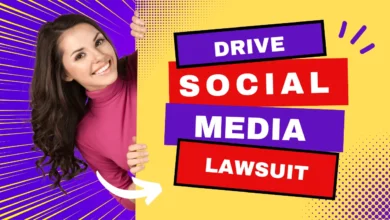Understanding the 72 Sold Lawsuit: What You Need to Know

What is the 72 sold lawsuit Program?
The 72 sold lawsuit program is a real estate initiative that aims to optimize the home-selling process by providing sellers with a structured, efficient, and streamlined experience. Launched with the intention of simplifying transactions, the program advertises a compelling proposition: selling homes within a 72-hour timeframe, hence the name. By leveraging modern marketing techniques and a network of real estate professionals, 72 sold lawsuit seeks to facilitate quicker sales while ensuring competitive pricing for the properties involved.
At its core, the 72 Sold program is designed to cater to homeowners who prioritize speed and efficiency in selling their houses. The program is particularly appealing to those who may need to relocate swiftly due to job changes, family needs, or other life circumstances. By focusing on a rapid sales process, it negates prolonged listing periods, thus reducing seller anxiety and uncertainty often associated with traditional real estate transactions.
The structure of the 72 sold lawsuit program is built around a few key principles. Initially, sellers are provided a comprehensive consultation to determine their specific needs and goals. Following this, a detailed marketing strategy is implemented, incorporating advanced online tools and tactics that capitalize on market visibility. As potential buyers express interest, the program ensures that qualified offers are presented promptly. This method not only promotes a quick sale but also enhances negotiation opportunities, positioning the seller to secure a favorable final price.

Overall, the 72 Sold program stands out by promising sellers a unique experience that blends speed with professionalism, effectively addressing common pain points within the real estate market. It is crucial, however, for sellers to be informed about potential legal considerations, which can manifest through instances such as the recent 72 Sold lawsuit, reflecting the importance of diligence and awareness in any real estate undertaking.
The Background of the 72 Sold Lawsuit
The 72 Sold program, which promises to sell homes within a specified period, has recently faced significant legal scrutiny, culminating in a lawsuit that has captured public attention. The events leading to this legal action primarily revolve around allegations made by various stakeholders involved in real estate transactions. Critics of the program assert that it potentially misrepresents the timeline and efficiency it claims to offer, raising concerns regarding the transparency of its operations.
Key allegations focus on the notion that the 72 Sold program encourages homeowners to accept offers that may not fully reflect their property’s market value. Detractors argue that this could lead to substantial financial loss for homeowners who may feel pressured to adhere to the program’s stringent timelines. Furthermore, it has been suggested that the marketing tactics utilized by the 72 sold lawsuit initiative might exaggerate its effectiveness, contributing to misconceptions among potential clients. The motivations behind the legal action stem from these perceived discrepancies and the potential harm they can cause to unsuspecting sellers.
The parties involved in the lawsuit include aggrieved homeowners, competing real estate agencies, and consumer advocacy groups, all of whom have voiced their concerns over the ethical implications of the program. As the lawsuit unfolds, the impact on public perception has been notable; many former supporters of the 72 Sold program have begun to express doubt regarding its reliability and integrity. This evolving narrative highlights the broader implications of the legal proceedings, as the real estate community and potential customers closely monitor how the allegations will affect the program’s future and reputation. Overall, the legal challenges faced by 72 Sold underscore the critical importance of ethical practices within such innovative sales programs.
Legal Implications and Current Status of the Lawsuit
The 72 Sold lawsuit has garnered significant attention within the real estate sector, primarily due to the implications it holds for the business model employed by the 72 sold lawsuit program. At its core, the lawsuit centers around allegations of deceptive marketing practices and potential violations of real estate regulations. Claimants assert that the company’s advertising may not accurately represent the financial outcomes clients can expect, which raises questions regarding transparency and consumer protection in the real estate market.
Defensive strategies put forth by 72 sold lawsuit primarily revolve around the assertions of compliance with established guidelines and regulations governing property sales. Legal representatives for the 72 Sold program argue that their methods are positioned to enhance client opportunities rather than diminish them, emphasizing that consumer choice and autonomy remain intact throughout the selling process. In this context, legal experts have weighed in on the potential consequences outlining how a ruling against 72 Sold could set a precedent for marketing practices within the real estate industry.
As it currently stands, the lawsuit is navigating through various court proceedings. Preliminary hearings have occurred, with both parties engaging in discovery – a phase where evidence is gathered to support their claims and defenses. Legal analysts are monitoring these developments closely, as outcomes in this case may lead to significant adjustments in how real estate companies market their services and interact with clients. Should the court rule against the 72 Sold organization, industry standards may prompt a reevaluation of practices and could catalyze regulatory changes aimed at safeguarding consumer interests.

In conclusion, the legal complexities surrounding the 72 Sold lawsuit not only highlight the intricate relationship between marketing and consumer protection but also pose fundamental questions about the future of the real estate industry’s operational framework.
Conclusion and Future Outlook for 72 Sold
The 72 Sold lawsuit has sparked considerable attention regarding the operations and efficacy of the 72 Sold program. As outlined throughout the article, the lawsuit raises critical issues that impact not only the integrity of the program but also the interests of its clients. Understanding the implications of this legal challenge is vital, as it highlights the importance of transparency and trust in real estate transactions. Clients rely on claims made by such programs, so any disruptions in these assertions merit caution and due diligence.
As we look ahead, the future of the 72 Sold program may be influenced significantly by the lawsuit’s outcome. Should the court favor the plaintiffs, it could prompt the program to implement necessary reforms, ensuring that its promises align more closely with the real estate market’s realities. Such changes may include refining marketing strategies, enhancing disclosures, and possibly adjusting the sales process to better protect consumers. These adjustments would not only serve to mitigate legal risks but may also enhance customer satisfaction, thus preserving the program’s reputation.
Conversely, if the lawsuit does not result in substantial changes or penalties, it may embolden the 72 Sold program to continue its operations as currently structured, albeit with heightened scrutiny from the public and media. Stakeholders, including clients and real estate professionals, will remain vigilant, evaluating how the developments unfold post-lawsuit. Ultimately, regardless of the lawsuit’s resolution, the ongoing dialogue surrounding the 72 Sold program will be essential as industry standards evolve. In conclusion, the future of the 72 Sold program lies in its ability to adapt to legal scrutiny while maintaining a commitment to honesty and customer satisfaction, affirming its place within the competitive real estate landscape.


